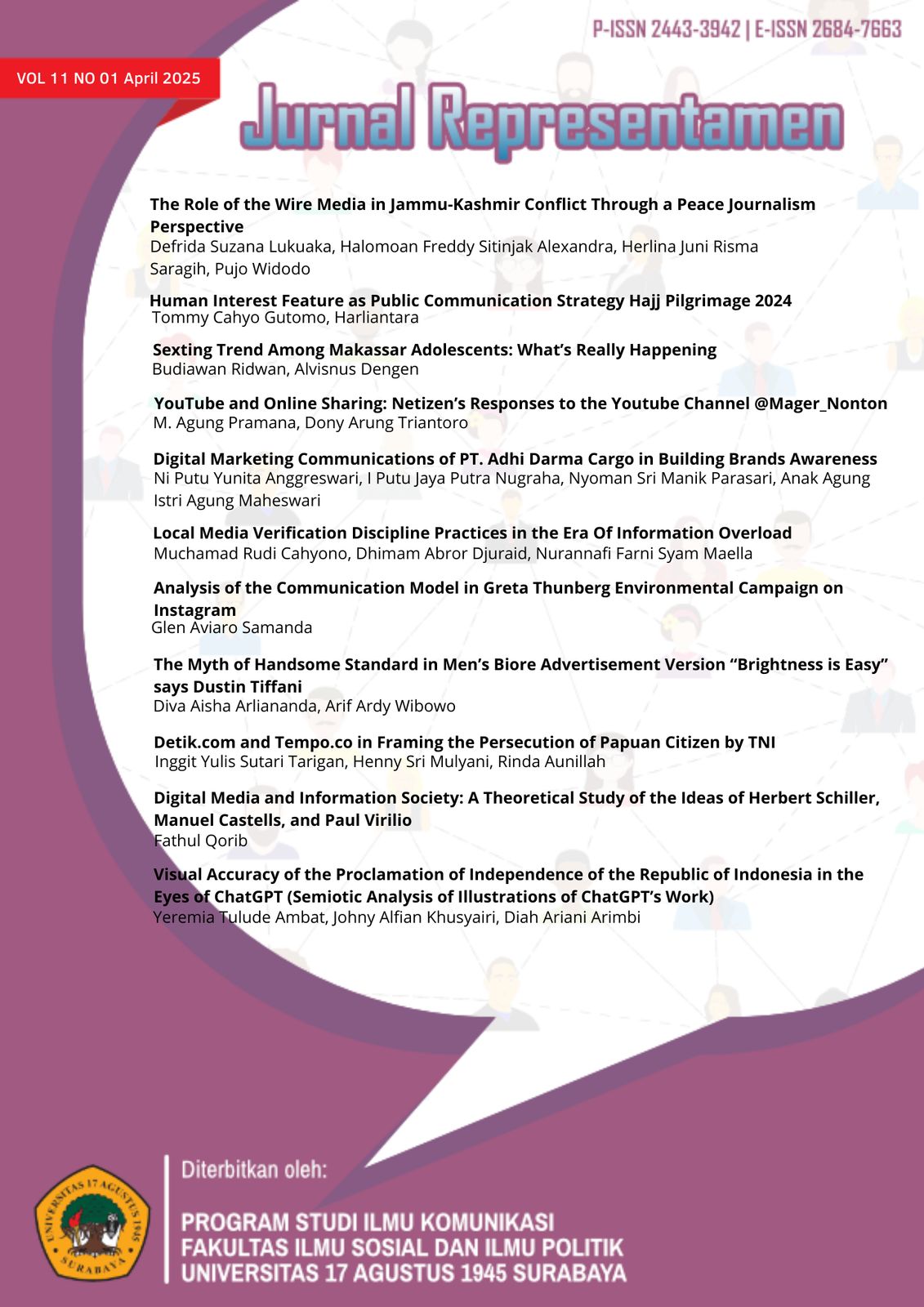Local Media Verification Discipline Practices in the Era Of Information Overload
DOI:
https://doi.org/10.30996/representamen.v11i01.12076Abstract
Access to information is becoming so easy and cheap. But the effect, a flood or an information tsunami, can be disruptive, extending the pattern of thought to human behavior. So from that some experts offer a predictive strategy, dealing with the disaster. One of the public instruments that has an important role to play is the journalists. Journalists become information gatekeepers from the public to the public. Because of its crucial role in the circulation of information, in the conduct of the profession, journalists have guidelines set out in UU No. 40 tahun 1999 and the Kode Etik Jurnalistik (KEJ). Verification discipline becomes the essence of journalistic activity. Conducting a disciplinary verification, will greatly determine the quality, validity, and credibility of the information presented. Unfortunately, verification disciplinary practice is sometimes not fully carried out. Including journalists from the area. Using the Bill Kovach & Tom Rosenstiel disciplinary verification concepts outlined in the Kode Etik Jurnalistik (KEJ), as well as the Pedoman Pemberitaan Media Siber (PPMS) on this study will look at how the coverage process, the treatment of sources, up to the practice of the discipline verification of local print and cyber media journalists. Using methods of case study research and comparative studies can deepen and compare journalists of print and cyber media of the region namely Radar Tulungagung and Afederasi.com practise the discipline of verification. But not entirely practiced well, more specifically in treating the source. This is due to factors of online media development, corporate operations and leadership policies
Downloads
Downloads
Published
Issue
Section
License
Authors whose manuscript is published will approve the following provisions:
The right to publication of all journal material published on the jurnal representamen website is held by the editorial board with the author's knowledge (moral rights remain the property of the author).
The formal legal provisions for access to digital articles of this electronic journal are subject to the terms of the Creative Commons Attribution-ShareAlike (CC BY-SA) license, which means Jurnal Representamen reserves the right to store, modify the format, administer in database, maintain and publish articles without requesting permission from the Author as long as it keeps the Author's name as the owner of Copyright.
Printed and electronic published manuscripts are open access for educational, research and library purposes. In addition to these objectives, the editorial board shall not be liable for violations of copyright law.











